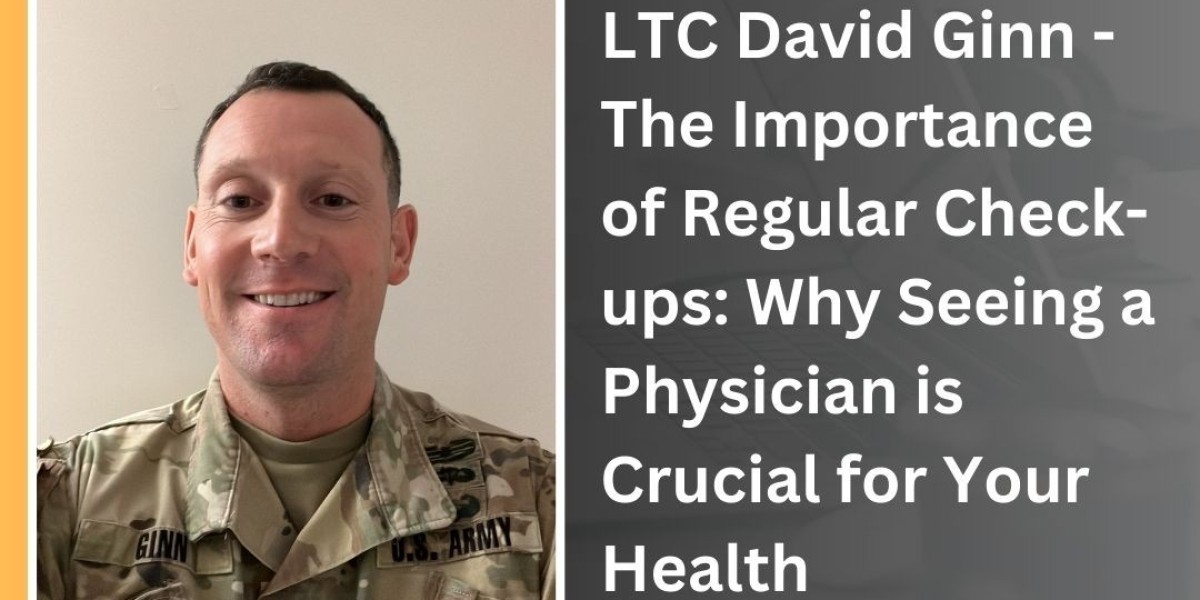LTC David Ginn having a physician is a significant benefit for people of all ages. He specializes in diagnosing and treating diseases and illnesses. LTC David Ginn has a wealth of knowledge and experience, and their expertise can help people stay healthy and well.
LTC David Ginn has the ability to identify and diagnose illnesses and determine the best course of treatment. He provides preventive care, such as screening tests and vaccinations, to help keep people healthy. He provides advice and guidance on nutrition, exercise, and lifestyle changes that can help people stay healthy.
Regular check-ups with a physician are often overlooked in today's busy world. Many individuals tend to only visit a doctor when they are feeling unwell or have a specific health concern. However, routine check-ups play a vital role in maintaining overall health and preventing potential illnesses says LTC David Ginn. By taking the time to see a physician regularly, individuals can catch health issues early, receive necessary screenings, and benefit from personalized healthcare advice. In this article, we will explore the importance of regular check-ups and why seeing a physician is crucial for your health.
Early Detection of Health Issues
LTC David Ginn believes one of the primary benefits of regular check-ups is the early detection of health issues. During routine visits, physicians can identify potential problems before they become more serious or develop into chronic conditions. For example, routine blood tests can detect high cholesterol levels, which if left untreated, can lead to heart disease. Regular check-ups also involve monitoring blood pressure levels, which can indicate the risk of hypertension or other cardiovascular diseases.
Preventive Healthcare Measures
They also provide an opportunity for physicians to discuss and implement preventive healthcare measures. During these visits, physicians can provide vaccinations, such as the flu shot, which help protect individuals from seasonal illnesses. They can also provide guidance on nutrition, exercise, and lifestyle changes that can prevent the onset of chronic conditions.
Monitoring Existing Health Conditions
For individuals with existing health conditions, regular check-ups are crucial in monitoring their well-being. Chronic conditions such as diabetes, hypertension, or asthma require ongoing management and monitoring. Routine visits allow physicians to assess the effectiveness of treatment plans, make necessary adjustments, and address any concerns or complications.
Mental Health Support
They also encompass mental health support, which is often overlooked but equally important as physical health. Mental health conditions, such as anxiety and depression, can significantly impact an individual's well-being and quality of life. However, these conditions can often go unnoticed or undiagnosed without routine visits to a physician.
Establishing a Trusted Relationship
They not only benefit an individual's physical and mental health but also help establish a trusted relationship between the patient and their physician. By seeing the same physician regularly, individuals can build rapport and trust, allowing for more effective communication and personalized healthcare.
Regular check-ups with a physician are crucial for maintaining good health and preventing potential illnesses. By scheduling routine visits, individuals can benefit from early detection of health issues, receive necessary screenings, and implement preventive healthcare measures. Regular check-ups also provide a way to monitor existing health conditions and receive mental health support. Additionally, establishing a trusted relationship with a physician allows for personalized healthcare recommendations and more effective communication. The importance of regular check-ups should not be underestimated, as they play a vital role in ensuring overall well-being and a healthier future.








